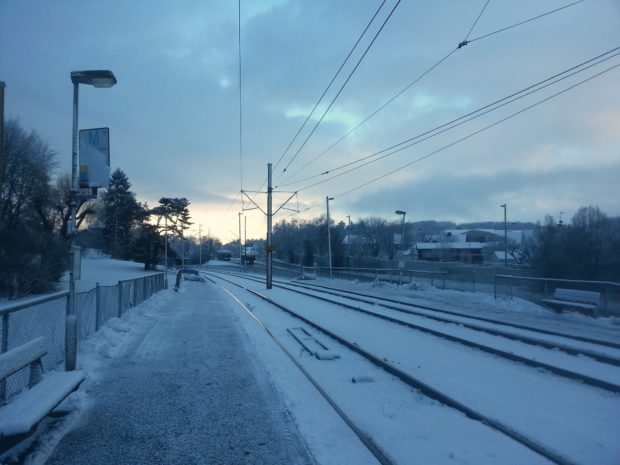You have no items in your cart. Want to get some nice things?
Go shopping
The trees are shades; hovering ghosts. I’m going to see my mother in her village. The compartment is warm; my wife is asleep. I can almost go to sleep myself. There is coffee on the table, in a French press, steeping. I feel very old; I am 42.
I can see a fox chasing the train, leaping in the snow. Almost I can see his eyes. My wife’s hand is warm; we have no children yet. My mother has been nagging us. I move to the other side of my wife and take her other hand so I can be closer to the window. She rustles and rests her head on my shoulder.
Outside the hills are white and brown, and the sun diffused over the sky, grave and white. I want to drink the coffee but not yet; it has to steep. You can barely detect the motion of the train, the forest is so large. The sleepy monster, returning home to its nest. Like me.
Once I was a very different man. But this is so ordinary it is almost not worth mentioning. Now I am this man, married, in winter, moving slow in a machine whose engines, like mine, burn at a pitch almost below hearing: a deep grind. I am glad you are with me too: my secret. But it is not right that I should acknowledge you. Still, I must, because it is to you that I am writing.
My mother’s village, you see, has been visited by plague. She is fine; she is always fine. I’m not concerned for her health, any more than the ordinary frailties of age. A slipping memory; a slower step. She is healthy.
I am hoping the winter will teach me something—of course it knows many things I do not, but I am looking for a particular something. Not a solution to this problem—there is no solution, as you know. Perhaps I am looking for the right philosophy. Though that isn’t quite right either.
Meaning, perhaps. Just tell me what it means, winter. My mother has gone mad.
– –
I don’t want to offend you, you see. Even though I offend others so routinely. Perhaps that is the reason. It is important that I tell you. I do not believe in the plague, you see. But that almost does not matter. The belief itself, in others, is enough. Like they have been visited by a curse.
The winter does not care for curses. It itself is a curse so large that it cannot even notice the pedestrian hexes of we human beings. We are almost outside of it—though we remain intimately connected, of course. I want to be like it: to be beyond this thing that is destroying my family. To care but to be beyond the need for caring about the consequences. No, that isn’t quite right. But I don’t know what the right thing to say is. I wish for a separate universe, I suppose. One where my wife and I can take shelter, in a winter just like this one, where no one need worry about the change come into the brain and faces of all my countrymen.
– –
She is in a little house on a hill. With her vegetable garden. The sun is almost down. The trees are the color of wool: green blue wool. The snow is grey. My mittens are black, my wife’s are red, in my hand. Some day soon I will leave this world—not in death. But in my mind. I have found the parallel universe after all. I should invite you with me but I cannot. It is for me alone.
The color of the sun is white-yellow. My boots are black, against the gravel. Inside of my mind—if I believe something strongly enough—if I can see it—
I will be the train, and cut through everything, on the path that has been laid out for me. My mother is waving from the stoop and coming down to meet us. Love is a strange demon, like the sun, setting itself back against the trees to swoon into the earth.

Robin Wyatt Dunn
Robin Wyatt Dunn lives in Los Angeles, but is trying to escape. In 2017 he was a finalist for poet laureate of his city.
- Web |
- More Posts(2)




